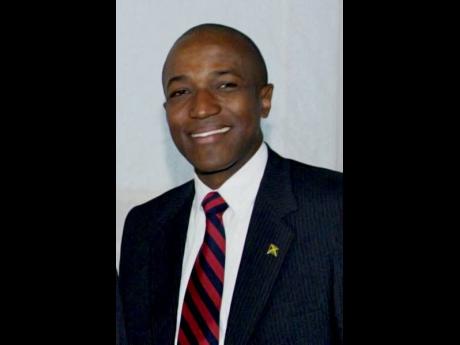Privy Council appeals ‘too expensive’
Gay rights activist Maurice Tomlinson says Jamaicans continue to be denied justice without the Caribbean Court of Justice
Gay rights activist, attorney-at-law Maurice Tomlinson, wants the Jamaican Government to adopt the Caribbean Court of Justice (CCJ) as its final appellate jurisdiction, as punitive costs to access the United Kingdom-based Privy Council, which Jamaica maintains as its final court, are preventing access to justice for the country’s poor and vulnerable.
Tomlinson told The Gleaner that he could not afford the long and continuous litigation against Television Jamaica (TVJ) - a member of the RJRGleaner Group of Companies - and he decided to forfeit a decision to go to the Privy Council following the 2020 Court of Appeal decision which dismissed the case. The station refused to air a 30-second advertisement which was produced as part of an advocacy campaign to encourage tolerance for homosexuals in Jamaica.
“I still maintain that TVJ’s decision not to air my ad calling for respect for the human rights of LGBT Jamaicans was an unfair, unreasonable and a discriminatory abuse of their government licence, which requires equitable access to the limited airwaves over which they have a significant control,” Tomlinson told The Gleaner late last week.
Tomlinson claimed that the refusal by TVJ, and CVM television, to air the video violated his right to freedom of speech and his right to distribute or disseminate information, opinions and ideas through any media, as guaranteed by section 13(3)(c) and (d) of the Charter of Fundamental Rights and Freedoms.
However, the Appeal Court, in a unanimous decision, and in a judgment largely written by Hillary Phillips, KC, said, while the rights guaranteed by the charter are capable of horizontal application, it cannot be held that the failure or refusal to broadcast the advertisement was unjustifiable in light of the TVJ’s own constitutional rights to refuse to air the video.
“The parties had engaged in a matter through the courts involving unchartered waters, and that is noteworthy as it aids in the development of the jurisprudence of the country, and in respect of which they should be commended,” Justice Phillips commented in the judgment.
Tomlinson was ordered to pay 60 per cent of TVJ’s costs of the appeal.
Chief Justice Bryan Sykes had ruled in favour of TVJ when the matter was first brought to court by Tomlinson. After Sykes’ ruling, Tomlinson appealed the decision.
He cited costs as the reason for his decision.
“However, I am also financially burdened fighting the government and the 10 religious groups that the court granted full standing as interested parties in my constitutional challenge to the anti-buggery law …,” he explained.
TVJ, in a release last week, said it noted the development and indicated that it is pleased with the outcome.
According to Tomlinson, “Very few, if any, Jamaican lawyers will do these cases pro bono because of the serious financial implications: quite simply, the cases are very time-consuming with the government putting multiple delays in my way, and the court authorised churches doing the same.”
He said, if the CCJ were Jamaica’s final appellate court, he could have made an e-filing and presented his case via video.
“I regret that this significant Charter case cannot be heard at our highest appellate court, which is another reason to leave the Privy Council and subscribe to the CCJ. Justice is too expensive to pursue before the Privy Council in the United Kingdom. The CCJ allows e-filings and video appearances that obviate the need to retain counsel in the UK,” he told The Gleaner.
No Jamaican attorney, even at the highest level of Kings’ Counsel, can appear before their final court. Counsel must be retained there at cost.
He suggested that many lawyers first fear losing clients, which has resulted in a refusal of handling cases of such nature (defending LGBT human rights) “in deeply homophobic Jamaica”.
The CCJ is headquartered in Trinidad and Tobago and serves as the final court for Barbados, Belize, Guyana and Dominica. St Lucia has given the green light in February this year that it will begin the process of adopting the CCJ as its final court.

